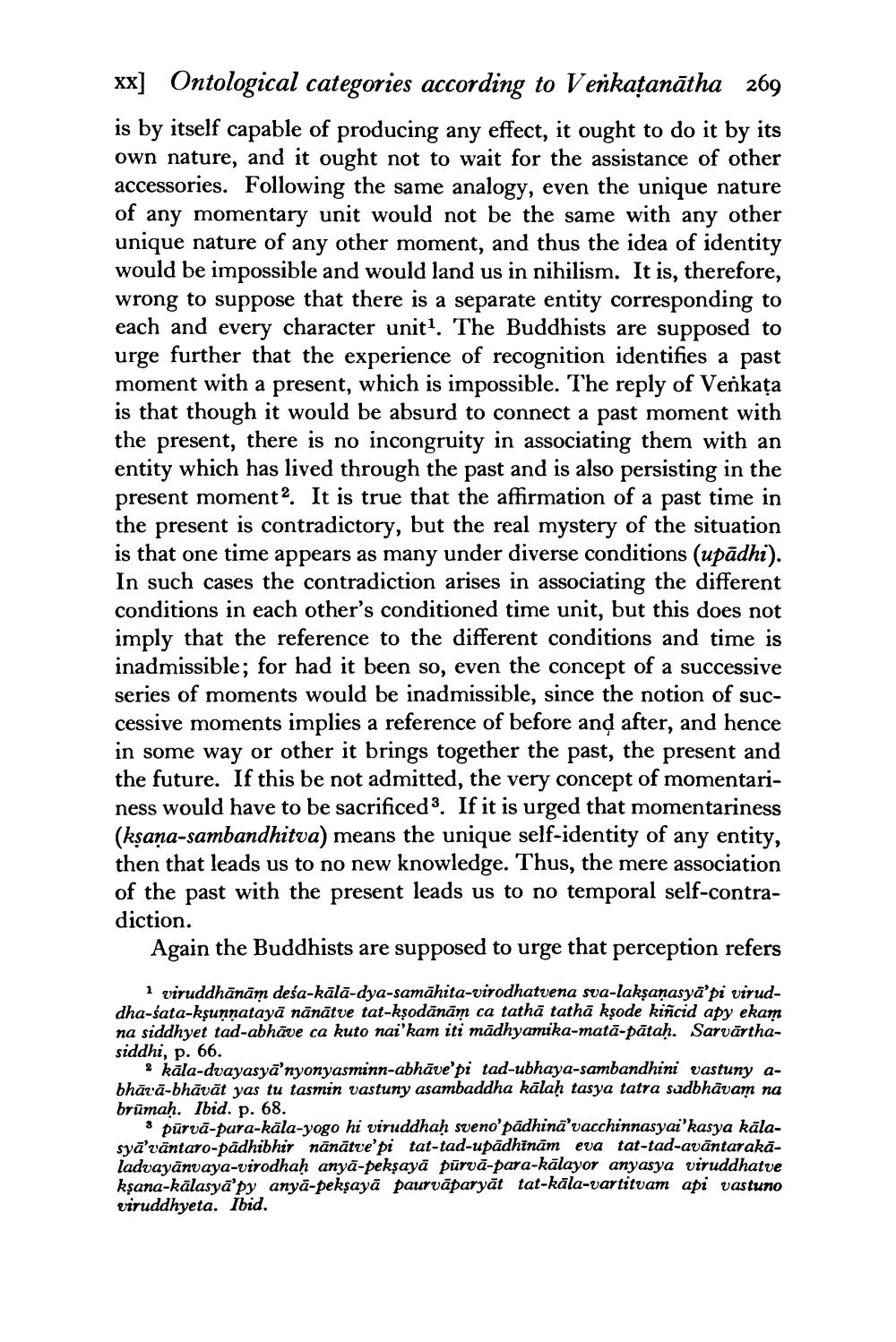________________
xx] Ontological categories according to Venkațanātha 269 is by itself capable of producing any effect, it ought to do it by its own nature, and it ought not to wait for the assistance of other accessories. Following the same analogy, even the unique nature of any momentary unit would not be the same with any other unique nature of any other moment, and thus the idea of identity would be impossible and would land us in nihilism. It is, therefore, wrong to suppose that there is a separate entity corresponding to each and every character unitThe Buddhists are supposed to urge further that the experience of recognition identifies a past moment with a present, which is impossible. The reply of Venkata is that though it would be absurd to connect a past moment with the present, there is no incongruity in associating them with an entity which has lived through the past and is also persisting in the present moment. It is true that the affirmation of a past time in the present is contradictory, but the real mystery of the situation is that one time appears as many under diverse conditions (upādhi). In such cases the contradiction arises in associating the different conditions in each other's conditioned time unit, but this does not imply that the reference to the different conditions and time is inadmissible; for had it been so, even the concept of a successive series of moments would be inadmissible, since the notion of successive moments implies a reference of before and after, and hence in some way or other it brings together the past, the present and the future. If this be not admitted, the very concept of momentariness would have to be sacrificed?. If it is urged that momentariness (ksana-sambandhitva) means the unique self-identity of any entity, then that leads us to no new knowledge. Thus, the mere association of the past with the present leads us to no temporal self-contradiction.
Again the Buddhists are supposed to urge that perception refers
1 viruddhānām deśa-kālā-dya-samāhita-virodhatvena sva-lakṣaṇasya'pi viruddha-sata-kşunnatayā nānātve tat-kşodānām ca tathā tathā kşode kiñcid apy ekam na siddhyet tad-abhāve ca kuto nai'kam iti madhyamika-matā-pātaḥ. Sarvārthasiddhi, p. 66.
2 kāla-dvayasyā'nyonyasminn-abhāve'pi tad-ubhaya-sambandhini vastuny abhāvā-bhāvāt yas tu tasmin vastuny asambaddha kālaḥ tasya tatra sadbhāvam na brūmah. Ibid. p. 68.
pūrvā-para-kāla-yogo hi viruddhaḥ sveno' pādhina'vacchinnasyai kasya kālasyā'vāntaro-pādhibhir nānātve'pi tat-tad-upādhinām eva tat-tad-avāntarakāladvayānvaya-virodhah anya-pekṣayā pūrvā-para-kālayor anyasya viruddhatve kşana-kālasyā'py anyā-pekṣayā paurvāparyāt tat-kāla-vartitvam api vastuno viruddhyeta. Ibid.




